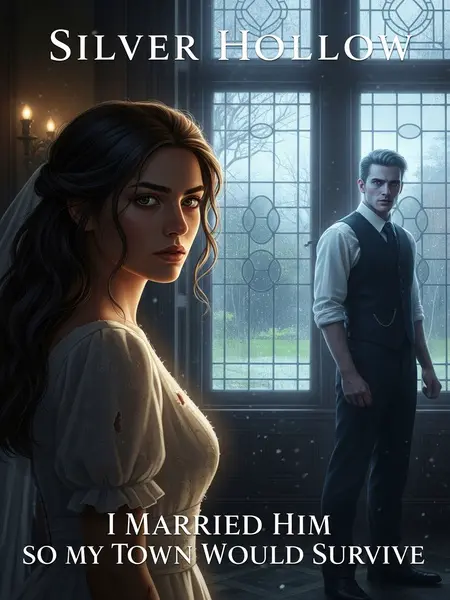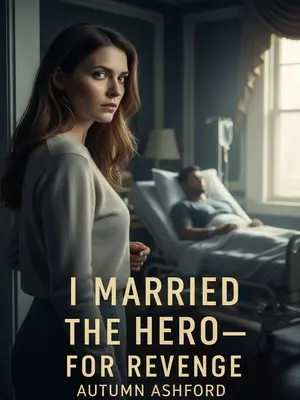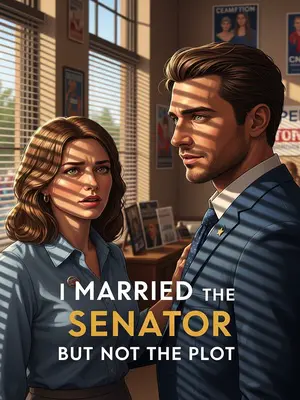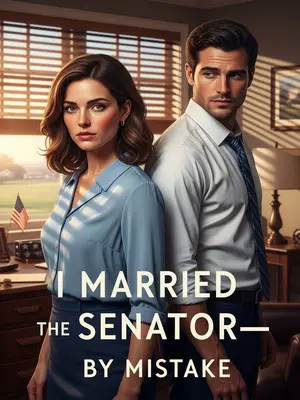Chapter 1: Borrowed Vows and Broken Glass
For three years, I wandered the streets, homeless, until Mrs. Langley found me and took me in. I never expected what came next. She made me the stand-in bride for her daughter.
Sometimes, I can still feel the cold from those nights sleeping on the sidewalk—the ache in my bones from concrete, the way hunger gnaws at you until it’s the only thing you can think about. Mrs. Langley’s kindness was the first warmth I’d known in ages. A miracle, really. In a world that had mostly turned its back.
I was sent to be the fiancée of the Whitmore heir—my job was to keep the peace between two powerful families.
Even now, I can remember the hush that fell over the Langley parlor when they told me. Like the air itself was holding its breath, waiting to see if I’d agree. It wasn’t a proposal. It was a job assignment. And everyone knew it.
So even though Harrison, the heir, had someone he truly loved—even though he humiliated and mistreated me, even put me in danger more than once—I endured it all with a straight face.
I became an expert at keeping my expression blank. I learned to let his words roll off me, to let the stares from the household staff pass through me like I was made of glass. I’d survived far worse than this.
Because I never expected to win his love in the first place.
The idea seemed laughable, honestly. As if that would ever happen. Harrison Whitmore, golden boy of Silver Hollow, and me—a nobody with a borrowed name. I knew my place.
But later, when my true identity was exposed, Harrison—who’d always acted like I was nothing—grabbed my sleeve, voice trembling, and said, “I don’t care if you’re a Langley or anyone else. I just want you. As long as you’re with me, that’s enough.”
His grip was desperate, knuckles white, like he thought I’d vanish if he let go. I’d never seen him so undone.
For a second, I didn’t know what to say.
“Nothing else matters to me.”
His words echoed in the quiet, as if he was finally saying what he’d been holding back for years. It almost didn’t sound like him.
I was a Langley. A fake one.
It was a borrowed life, one I wore like an ill-fitting coat. Every day, I wondered—would someone notice the seams?
But I looked almost identical to Victoria Langley, so I was sent to Silver Hollow as her stand-in bride.
The resemblance was uncanny—so much so that Mrs. Langley’s own relatives sometimes did a double take. I suppose that’s what made me useful to them, in the end.
Before I left, Mrs. Langley asked me, “Don’t you… resent all this?”
Her voice was gentle, but her eyes searched mine, looking for anger or fear. Maybe she hoped I’d refuse, that she could say she tried.
I said, “It doesn’t matter to me.”
I meant it, too. I’d learned not to expect much from life, and at least this way, I’d have a roof over my head.
She dabbed the corner of her eye with a handkerchief, wanting to say something but stopping herself. In the end, she just sighed and said nothing more.
Her silence felt heavier than any words. I think she wanted to believe I’d be alright. Maybe she was trying to convince herself as much as me.
I was driven in a white limo to the Whitmore estate.
The car was spotless. The driver, stiff and silent. I felt like I didn’t belong. As we wound through the streets of Silver Hollow, I watched the world blur by, heart pounding in my chest. I pressed my palm to the cold window, wondering if I’d ever see Maple Heights again.
The man I married was Harrison Whitmore, the heir of Silver Hollow’s most prominent family.
The Whitmores were old money—pillars of the town. Their estate was all white columns and manicured lawns, the kind of place you see on postcards. Harrison fit right in, tall and broad-shouldered, with that air of someone who’s always been in charge.
He was capable, a decorated Army veteran. I’d heard about him, even back in Maple Heights.
People whispered about his medals, the stories of bravery overseas. Even in Maple Heights, folks spoke his name with a mix of awe and envy.
But he was infamous in other ways, too. That, I also knew.
His temper was legend, and his stubbornness even more so. The town gossips loved to speculate about what went on behind those Whitmore gates.
For example, he was in love with the mayor’s younger daughter. But she’d married someone else—his own older brother—yet he still couldn’t let go.
Small towns never forget a scandal. Everyone in Silver Hollow knew the story, and everyone had an opinion.
To put it nicely, he was deeply devoted. To put it bluntly? He was stubborn to the point of having no shame.
The way people talked, you’d think he was a tragic hero or a villain, depending on who you asked.
People gossiped about him, but he didn’t care.
Harrison walked through life as if the world owed him nothing—and he owed the world even less. He never bothered to defend himself.
He didn’t like me, and I didn’t care about that either.
It made things simpler, in a way. We both knew the score.
At our wedding ceremony, when he held my hand as we stood before the altar, I saw his cold, disgusted expression.
He looked at me like I was the last person on earth he wanted to see.
His jaw was clenched so tight I thought he might crack a tooth. He barely looked at me as the pastor spoke.
Right then, I knew he hated me. Even though we’d never met before, I must have already ranked high on his list of people he couldn’t stand.
It was almost funny, the way he recoiled from my touch. Like I was dangerous. Like a snake he’d been forced to hold.
But he still faced the pastor and made a vow to spend his life with me. Guess God wasn’t listening—no lightning struck him down for making such a hollow promise.
I remember standing there, waiting for something—anything—to happen. But the heavens stayed silent, and the pastor kept going, his voice echoing in that cavernous hall.
On our wedding night, he lifted my veil, said nothing, and handed me the champagne flute.
His hand was steady, but his eyes were miles away. The gesture was so perfunctory, it almost made me laugh.
He did it carelessly, like tossing a bone to a stray dog.
I’d seen that look before, back when I was begging for change on the street. It stung, but I hid it well.
The wine sloshed in the glass, spilling onto my white wedding dress.
A red stain. Like a warning.
It was rude, but I wasn’t sure anger would help.
I weighed my options, but in the end, anger felt pointless. I was here to play a part, not to feel.
If it were the real Victoria, she’d probably be furious. But I was on someone else’s turf—what right did I have to get angry?
Sometimes I wondered what Victoria would’ve done in my place. I doubted she’d have let anyone walk all over her, but I’d never had that kind of power.
So I took the glass, glanced at him, clinked it to his as a token gesture, then tipped it over and poured it onto the floor.
It seeped into the expensive carpet. Red on white. I didn’t care.
For a moment, Harrison’s eyes widened in surprise.
He frowned. “What are you doing?”
His tone was sharp, but there was a flicker of something else—confusion, maybe.
I stayed calm. “My hand slipped.”
I kept my voice even, meeting his gaze without flinching.
He clearly wasn’t happy and gave a derisive snort.
He turned away, shoulders tense, jaw working. Whatever he wanted to say, he swallowed it.
So I guess I should’ve been angry after all.
Maybe I was. Or maybe I was just tired of pretending.
Our wedding night ended in awkward silence. He pushed open the door and strode out—to who knows where.
The click of the door closing echoed in the empty room. I sat for a while, listening to my own heartbeat, then finally moved.
I blew out the candles, took off my pearl hairpins and tiara, and went to sleep fully clothed.
Didn’t bother with the sheets. The dress was stiff and uncomfortable. Didn’t care. Sleep came quickly—exhaustion always wins.
That was the first day of my marriage to Harrison Whitmore.
I lay there in the dark, wondering if things would ever get better. I didn’t hold my breath.
The next morning, the house staff searched around the bed for a long time before stepping back, looking defeated.
Their whispers drifted through the half-open door. Words like “evidence” and “report.” My stomach tightened.
I asked what was wrong. They said there was no blood on the sheets, so they couldn’t report back to the family.
It took me a second to realize what they meant. My cheeks burned, but I kept my tone cool.
Just then, Harrison returned. Seeing the scene, he leaned against the door, looking on with a hint of schadenfreude, as if waiting to see me make a fool of myself.
He was enjoying the spectacle, arms crossed, eyes glinting with amusement.
I got up, pulled a hairpin from my head, and, without hesitation, stabbed it into my finger.
The pain was sharp, but I barely flinched. I’d done worse to survive.
Blood welled up. I smeared it on the sheet.
The red streak looked almost artistic against the crisp white linen. I handed it over with a steady hand.
I handed the sheet to the housekeeper. “Here, this should do, right?”
She seemed at a loss, awkwardly taking it, then turned to me again. “Is… is this really okay?”
Her voice trembled. She looked from me to Harrison, clearly out of her depth.
I said, “Either way, someone got pricked by a pin. Just go with it.”
I shrugged. The absurdity of it all almost made me laugh.
At that, Harrison’s face darkened instantly.
He glared at me, lips pressed in a thin line. I could see the muscle in his jaw twitching.
He looked like he wanted to yell at me, but held back with people watching. With another cold snort, he swept out of the room.
I watched him go, the door slamming behind him. Some part of me wanted to care, but mostly I just felt relief.
He must have really, really hated me.
I was used to it. Hatred was easier to handle than indifference.
Even so, he still had to accompany me to the main house to greet Mr. and Mrs. Whitmore.
We moved through the halls like strangers forced to share a stage. The house was so big, you could barely hear our footsteps.
We sat side by side, wearing matching fake smiles, playing along as the Whitmores spoke to us.
The formalities dragged on. I nodded and smiled at all the right moments, careful not to give anything away.
We answered smoothly, without slipping once. As if, after just one night, we were already the picture of marital bliss.
It was an act, but a convincing one. Years of survival had made me a decent liar.
But as soon as we left the main house, he quickly let go of my hand—the one he’d reluctantly held moments before.
His grip vanished so fast it was like a magic trick. The chill in the air returned.
“Quite the actress, Mrs. Whitmore.”
His voice was low, almost mocking, but I caught a hint of grudging respect.
I couldn’t tell if it was praise or sarcasm, so I just took it as a compliment. “You too, Mr. Whitmore.”
I let my words hang in the air, matching his tone beat for beat.
His eyes were flat. “You really are… hard to like.”
There was no heat in his words, just a flat statement of fact.
I said, “That’s true.”
I met his gaze, unblinking. No point denying what we both knew.
He suddenly paused in his stride, turned to give me a puzzled look, surprised by my answer.
For a moment, he seemed thrown off. Like he’d expected me to argue.
We stared at each other. I thought maybe he hadn’t heard me, so I repeated, “It’s true, I’m not very likable.”
I’m someone even God didn’t want.
The thought was bitter, but I’d lived with it for so long it almost felt comforting.
If I hadn’t survived freezing under that overpass, I wouldn’t have been picked up by Mrs. Langley’s driver, wouldn’t have met her, and certainly wouldn’t have ended up here as a stand-in bride.
Sometimes fate feels like a cruel joke, but I was alive. That had to count for something.
Mrs. Langley told me to take these secrets to my grave.
She made me swear on everything I had left—which wasn’t much. I’d never break that promise.
If I let even a word slip, my life wouldn’t be the only thing at stake—if the Whitmores found out, it could even mean disaster for my hometown.
The weight of it pressed on me every day. I’d learned to live with secrets, to tuck them away where no one could see.
Lost in thought, I looked up to find Harrison had vanished, along with the car.
He was gone so fast, I wondered if I’d imagined him being there at all.
“Where’s the car?” I asked.
My voice sounded too loud in the empty driveway.
His assistant replied, “Mrs. Whitmore, Mr. Whitmore said since you’re new to Silver Hollow, you should see more of the town. He went ahead and said you should… walk back on your own.”
The assistant looked nervous, making it obvious Harrison was being deliberately difficult.
He wouldn’t meet my eyes, fidgeting with his tie. I almost felt sorry for him. Almost.
My maid, Maribel, who’d come with me from the Langleys, was furious and wanted to have a car sent for me right away.
She was always ready to fight my battles, bless her heart. But I shook my head.
I stopped her. “It’s fine. Let’s go.”
I forced a smile, trying to reassure her. “I could use the fresh air.”
I’d already traveled hundreds of miles as a runaway—what’s a couple city blocks? We’d be back in less than an hour.
Compared to everything I’d survived, this was nothing.
But instead of taking the shortest route, I walked through the busiest, most crowded streets in town.
I wanted to see the heart of Silver Hollow, to feel its pulse. The crowds made me feel invisible—strangely comforting.
Just how crowded? I hadn’t gone far before I ran into a street brawl.
The noise was deafening—shouts, laughter, the clatter of bottles. I hesitated, but it was too late to turn back.
A college kid in a white button-down was shoved out the door of a bar. I reached out and caught him, steadying him.
He was lighter than I expected, all nervous energy and adrenaline. He looked up at me, eyes wide.
“Thanks, uh… you’re pretty strong.”
His voice was shaky, but he tried to muster a smile. I nodded back, not sure what else to say.
Within moments, seven or eight more college guys rushed out, dressed just like him. Seeing me shielding him, they assumed I was with him and prepared to fight us both.
They puffed themselves up, trying to look tough. Their hands were trembling. I rolled my eyes.
God help me—I hadn’t meant to get involved.
All I wanted was to get home in one piece. Trouble seemed to find me no matter where I went.
I glanced at the group, all posturing but clearly not fighters. I couldn’t help but smirk—honestly, I could probably take down three of them with one hand.
I sized them up quickly, noting their stances. Street smarts came in handy, even in Silver Hollow.
But before I left, Mrs. Langley had warned me to keep a low profile and not cause trouble.
Her words echoed in my head, a warning bell I couldn’t ignore.
So, after a moment’s thought, just as their fists flew toward me, I spun around and collapsed to the ground.
I let my knees buckle, pitching forward with a dramatic gasp. I’d always been a fast learner.
Immediately, Maribel shrieked, “Oh no, Mrs. Whitmore fainted!”
For a split second, I thought, Is this really my life? Her performance was even better than mine. Within seconds, a crowd gathered, and the would-be brawlers scattered.
And so, I was carried back to the Whitmore mansion.
The ride back was a blur of voices and worried faces. By the time we arrived, I was half-asleep, half-laughing at the absurdity of it all.
Under Harrison’s bewildered and annoyed gaze, I slowly opened my eyes on the bed.
He hovered in the doorway, arms crossed. Looked like he’d rather be anywhere else.
“What happened to you?”
His tone was more annoyed than concerned, but I played along.
I propped myself up and answered casually, “No idea. Must be heatstroke.”
I yawned for effect, stretching out under the covers like nothing had happened.
A cool breeze blew in. I wrapped my cardigan tighter. Snuggled back under the covers.
The room smelled faintly of lilac and old wood—a strange comfort.
Harrison clearly saw through my excuse and shot back, “Then you’d better take care of yourself, Mrs. Whitmore. Next month’s Ridge Run—try not to get eaten by a wolf.”
He sounded almost amused, as if daring me to prove him wrong.
The next day, Harrison was chewed out by his parents for abandoning me in the street, which led to my public collapse and embarrassed the family.
The tension at breakfast was thick enough to cut with a knife. Harrison sulked, shooting daggers at me across the table.
He was annoyed, accusing me of deliberately taking the long way and parading around.
He muttered under his breath, but I caught every word. I just shrugged. Let him mutter.
So he noticed after all.
I hid a smile behind my coffee cup. Maybe he wasn’t as oblivious as he liked to pretend.
So, Harrison disliked me even more. No surprise there.
I was starting to think it was his default setting.













